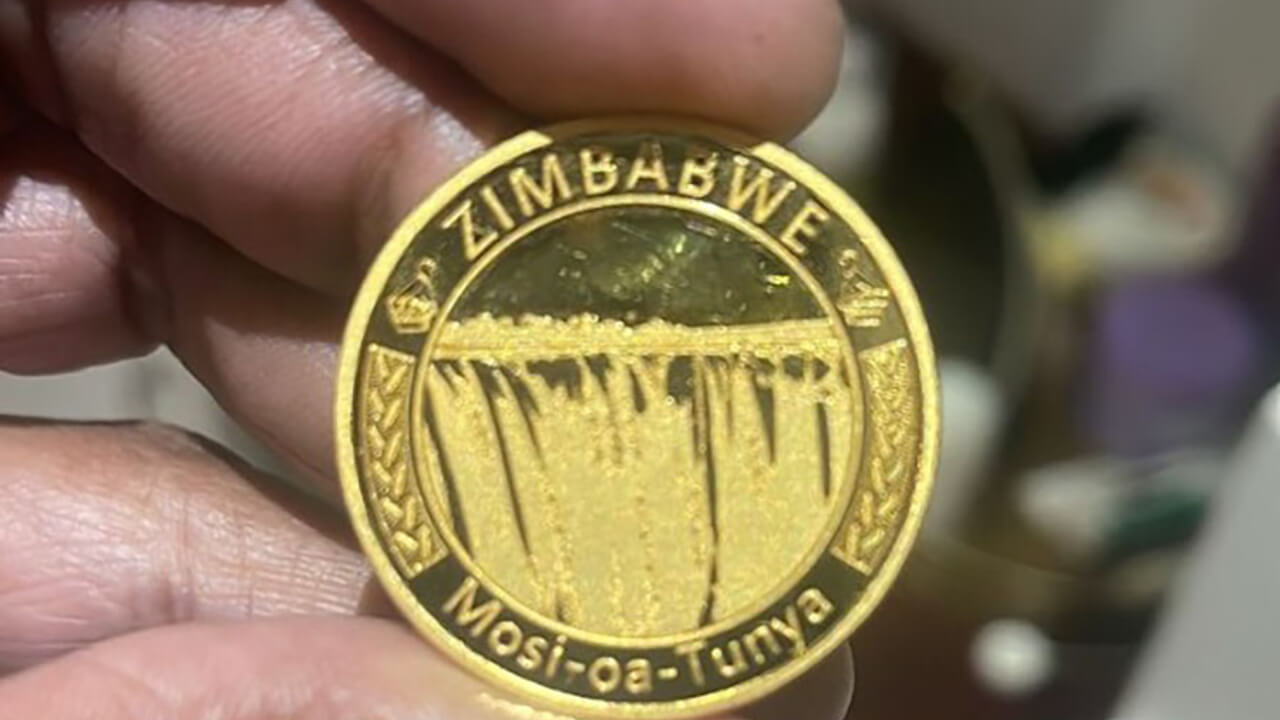Gold coins hailed as a worthwhile move
Research firm FBC Securities says gold coins have been a worthwhile intervention by the Reserve Bank of Zimbabwe (RBZ) to mop up excess liquidity in the economy in order to stabilise inflation and exchange rates.
In its monetary policy statement (MPS) review report, FBC said at a time when the investment community has limited quality assets, gold coins provided a relatively efficient investment alternative, which has reduced aggregate concentration risk.
“As an open market operation tool, gold coins have effectively reduced excess liquidity that was chasing few dollars in the economy. However, an individual penetration ratio of 16 percent is low.
“Incentives targeted at individual investors may be a worthwhile consideration to ensure an even holding distribution which is developmental in the economy,” the securities said.
This comes as the RBZ, in its MPS, said it would continue to avail gold coins on a demand-driven basis as it seeks to promote a savings culture and provide alternative investment instruments to the public in the dual currency system.
But in December 2022, the International Monetary Fund (IMF) said Zimbabwe should introduce interest bearing assets to mop excess liquidity and wind down the use of gold coins to “sustainably anchor economic growth”.
In a report after the annual Article IV consultations, IMF said the central bank had to maintain an appropriately tight monetary policy stance to “durably restore macroeconomic stability and ensure social stability”.
The IMF said the central bank should restore the effectiveness of monetary policy, including through the “use of appropriate interest-bearing instruments to mop up liquidity and winding down the use of gold coins”.
In his response at the time, RBZ Governor, Dr John Mangudya said the bank will not phase out gold coins.
“The IMF mission team to Zimbabwe did not fully appreciate the bank’s noble objective of introducing gold coins into the domestic economy,” he said.
“They view the issuance of gold coins as tantamount to intervening in the foreign exchange market, thus depleting foreign exchange reserves.
“The bank, however, views the gold coins as an alternative product or asset to foreign currency in the economy’s dual currency system, hence a retail open market operations instrument for store of value and for mopping excess liquidity.
“Use of gold coins for mopping excess liquidity is particularly important in the dual currency environment where the public has a choice of holding both the US$ and local currency.”
He added that in an environment when the public prefers holding the US dollar and has less appetite to hold domestic currency-denominated assets, the use of gold as a liquidity-mopping instrument is more effective.
“Thus, the bank views the gold coins as a necessary open market operations instrument if the economy continues with a dual currency environment and the uncertainty of losing value on domestic currency-denominated investments is perceived to be high.”
“Against this backdrop, the bank has no plans to withdraw the gold coins until such a time when there is a high preference by the public to hold domestic currency-denominated assets that can also be used as open market instruments for mopping liquidity,” he concluded.
According to the RBZ, it sold a total of 25 188 gold coins worth $20 billion as at January 13, 2023.
Zimbabwe took the unprecedented step of introducing gold coins as legal tender after inflation spiked from 191 percent in June to 257 percent in July 2022.
The gold coins are minted by the RBZ-owned Fidelity Printers, the sole buyer of gold in the country.
The gold coin price is determined by the international market rate for an ounce of gold, plus five per cent for the cost of producing the coin.
RBZ gold coins were introduced on July 25, 2022 as part of several policy measures to ease demand for the greenback, stabilise the Zimbabwe dollar exchange rate and tame resurgent inflation.
The gold coins have a vesting period of 180 days after which the Bank can buy them back from the investors.-herald.cl.zw










